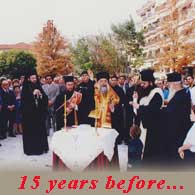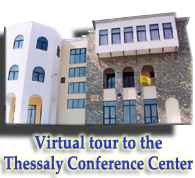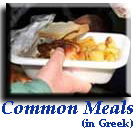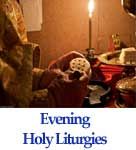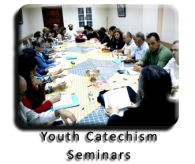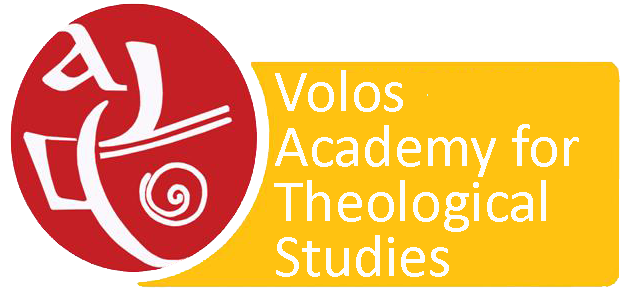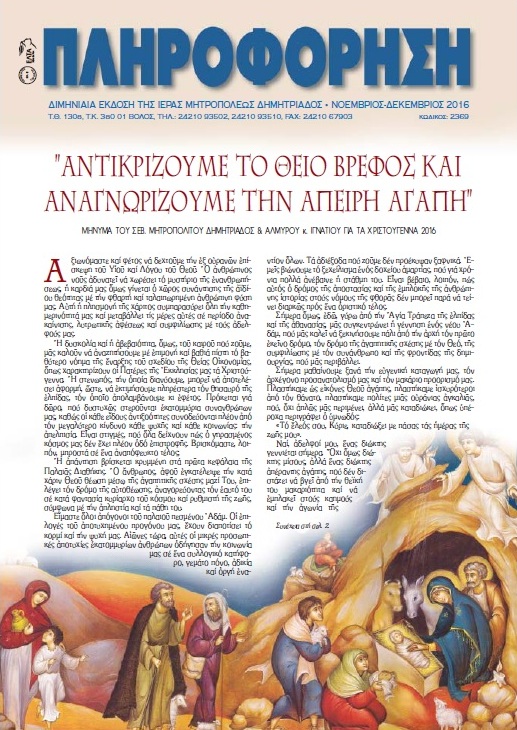HOMILY OF METROPOLITAN OF DIMITRIAS AND ALMYROS RIGHT REVEREND IGNATIOS FOR THE SUNDAY OF ORTHODOXY IN THE CATHEDRAL OF ATHENS 2017
"A feast of joy and gladness is revealed today "
(From the Praises in Matins on Sunday of Orthodoxy)
Your Excellency Mr. President of the Greek Republic,
Your Grace Archbishop of Athens and All Greece.
This present day is considered a day of joy and triumph. Joy and triumph, not a religious dogma against anyone else. Neither a worldview at the expense of another.
Today, what is honored, is man himself in his entirety. Man as body and soul, as something intangible, but also as something material, as something invisible and as something visible.
Today the man is restored, whom the material culture so brutally relegated to a faceless entity and changed him into a nameless, worthless and meaningless being.
Today, Orthodoxy is revealed as the par excellence humanistic teaching, which defends the human as a body and soul unity.
No worldview, no system and no philosophical or political doctrine honored the human body and the 'material' as does the Orthodox faith today, and has done through the ages.
Through out the time when the iconoclasts prohibited the display of Christ, as allegedly derogatory to His Divinity, they destroyed essentially the most fundamental element of the plan of the Divine Economy: 'The incarnate manifestation of the Son and the Word of God.'
Thus, intentionally or unintentionally, they attempted to impose a type of spiritual life that abhors body and considers the material totally alien to the spirit. Consequently, they made him unworthy to receive God's love and inevitably, completely unable to participate in the renewal of the immortality of mankind.
The restoration of the icons was not imposed because of financial interest or ignorance, as some have argued, but due to the struggles and reflection of leading spiritual statures of the time, such as St. John of Damascus, who made clear the distinction between matter depicting the Creator, and the Creator who is depicted, and for whom respect and honor is due .
The theological reflection of this great father of our church, like all the fathers of the Seventh Ecumenical Council, which finally ruled in favor of icons, revealed in its fullness the design of the incarnate Son and Word of God.
He, through His incarnation, came to save man and the world, uniting the created with the uncreated, heaven and earth, the spiritual with the material, thus overcoming every form of partition, devaluation of the material element and division in matter and spirit, body and soul, history and eternity, as is diffused in some religious circles.
With His incarnation the Son and Word of God assumed human nature and human history. He became Himself history, so that we could become godlike, that is becoming gods by grace.
It is no coincidence, then, that the great fathers of the Church taught us respect and affirmation to the material world, and became inisiate of our salvation. As Saint John of Damascus, the theologian per se of the icons, characteristically noted, "I do not worship matter, but worship him the creator of matter, He, who became matter for me and deigned to dwell in matter, thus attained my salvation through matter, and will not cease to respect matter, through which my salvation was brought about "(To Those Who Attack Holy Icons, A, 6, PG 94, 1245AV, trans. EPE, vol. 105, p. 43).
Gaze, then, at Christ, perfect God and perfect man, who, as the hymn of this day says, 'hast filled all with joy,' calling us, the soul and the body, and also the material world to an all embracing salvation.
Today the ancient beauty is reformed and the creation of man is fulfilled again, as then, when our earthly nature received the divine breath.
Today we are reborn as God's icons and our existence rediscovers its glory from the time before the Fall of Man.
Today, the procession around our Churches takes place, holding in our hands the Holy Icons and honoring their restoration. In reality, however, we perform an even more important act: we process ourselves as living icons of our divine prototype of our Creator Himself.
Today, the figures of the saints on the icons remind us of our infinite potential and our original prospects. There were people like us.
Their perishable bodies, however, changed into vessels of holiness and love, participating thus in their union with God. Because of this, when their soul was separated from their bodies, they remained holy reliques, fragrant and miricleworking, living witnesses of their share in the experience of their relationship with Him.
Magnificent are the consequences and even the prospects of the restoration of the body and soul unity of man. He who accepts and recognizes the icon of God in himself, cannot but see in every human being an icon of God. In each characteristic, such as gender, language, origin, education, financial standing, he discerns his own glory, the same restored divine image, the same God who calls him to meet Him.
For the Orthodox Christian, who is conscious of his faith, all people make up the ecumenical brotherhood with endless mutual respect. Within this, even the farthest and the least of the world, depicts Christ Himself, who identified with the poverty of this marginalized world.
He is it who said: 'just as you did it to one of the least of these, you did it to me.'(Mt. 25, 40)
This present day could be a global day of human brotherhood and decisive opposition to the marginalization of the most miserable man, across the land. Because faith in divine Incarnation is a faith in human greatness.
Our human nature and the creation became the place of the manifestation of His love for the world.
Some time ago in Bethlehem we welcomed the humble God, who out of His love denies any trace of divine grandeur.
In a few weeks we will look to God cruxified, who out of His love denies any trace of human dignity. We are icons of such an image, we are creations of such a love, we are carriers of such a desire of love and compassion.
Through our human nature, God revealed himself to us as authentic life, a life of love and sacrifice for each man and the whole world.
The Church remains the family, where each recognizes the other the divine glory. Its cohesion has as its foundation a deep gratitude to Him who came to earth as "a servant of all."
For exactly this reason the Eucharistic ecclesial community becomes aware of its own mission as a corresponding ministry. The ultimate goal of the community is the imitation of the love for its creator, touching the unattainable for human nature, but feasible for the divine-human nature: Love even for the enemy.
Such community condems evil, but never condemns the sinner. It is incompatible with sin, but keeps its eyes constantly fixed on the deepest craving of every man for heaven, writes the poet.
The greatness of this day is not only confined to the social dimension. It brings redemptive effects to our attitude toward the material world.
Man as a living icon of God, accepting the value of material existence of himself and the world turning with respect to look at all the material creation. The material world is the all - embracing and the means to manifest real practical love, as already expressed from the time of the presence of Christ on earth.
Because, what else was the multiplication of loaves and fish than the promise and confirmation that love of fellowman and respect for the physical creation which is capable of satiating the whole humanity?
What else is the changing of bread and wine into the body and blood of Christ during the Eucharist, other than the uplifting of matter to the ultimate means of holiness and salvation?
Respect for people and respect for the environment, are now both burning requests of the global community and particularly the European communiy. This present day then, could be a day of European values. Because all these christian ideals led to design of a united Europe, in order to provide beacon for all mankind.
Without, then, a living relationship with Christ the Saviour, the ideals fall into a sterile moralism and degenerat into a bitter memory. The cutting off of western civilization from its christian roots was the cause of the wilting of european humanism, which was replaced by inhuman indicators and human degradation.
At the same time, the environment increasingly suffers the repercussions of sacralization and gradually altered to plunder trophy in the distorted name of wrongly understood development.
Only the return to a living relationship with the Creator God can restore the sanctity of the human body and in extension, the entire material creation. From there will arise a truly sustainable development, which, however, will be an expression of a moral and spiritual sustainability, capable of holding the man in balance and gives real hope for a life that does not end in the biological cycle.
How can, though, today's Orthodoxy contribute to this return?
In times of the depreciation of human value, Orthodoxy, every day and eminently today, where celebrated, will continue to highlight the value of the human person, which in its body and soul unity accepts gift of eternity.
In times of arrogant leaders and false hopes for the future, Orthodoxy will continue to preach Christ crucified, not as a loser of history, but as unique path of sacrificial self-denial towards peace and light.
In times of despair, facing the omnipotence of death, which appears suddenly and violently at any moment in our everyday life, Orthodoxy will continue to proclaim the fact of the resurrection, not as a fait accompli, but as an ever recurring event in its life.
At the same time it will be a reminder that faith and morals of the church did not remain simple theories, but they took flesh and blood, bringing to each time, forms which nourished the tree of hope, for a better society and a brighter future.
The sacredness of the human person is reflected in the synodal system of the Church, even in times where absolutism was considered self-evident.
Even in our recent history, the Orthodox faith often permeated politics with genuine humanism, as in the case of Governor John Kapodistrias, who remains up to today the example for genuine patriotism and absolute selflessness.
We understand, therefore, that the unity of spirit and matter, soul and body, visible and invisible, which is shown today, concerns all aspects of human life.
It concerns the unity of faith and everyday life, existential perspective and political acts, person and society, management of current and prospective universal vision of a world of solidarity and justice, vision that is not even real, but eating away at our heart and invite us give meaning to our actions. Orthodoxy, par excellence in Greece today, proclaims the implementation of such a vision, establishing and continunig the cohesion of the Greek people.
Its spirituality and its tradition establish the Church as a unifing power in a fragmented society, which looks for the suitable word and work of reconciliation. The response to this expectation are all the spiritual and charitiable projects that the Church, with all its power provides for Greek society.
So for this we struggle for a living Church, free and able to manage its own house, with pastors worthy of their mission to minister to the unity and salvation of its people.
Mr President, Your Grace,
A brighter future may not be found by a devalued people. If human existance remains a statistic and consumable item, humanity will stumble and will seek a substitute meaning of life in inhuman ideologies and destructive practices. Those phenomena, as well you know, are able to lead to a devastating religious fundamentalism and make political plans fully ineffective.
The devaluation of man, can temporarily lead to apparent fulfillment of authoritarian plans. However it is a matter of time before the complaints and the rage of the people because of their humiliation constitute the raw material of explosive developments and uncontrolled upheaval.
Today we must pronounce a simple but decisive message: Man is an icon of God and therefore is of supreme value. When this truth enters into any plan humanity will taste the quality of life that it desperately seeks.
In this search, the Orthodox Church will never cease to prove with its life and its word with the ethos of the saints and constant self-criticism and repentance of us all, that a such a vision is feasible. But above all, every such a day, like this day, will always be a reminder that true worship of God is identical to the full respect for each person individually.
For the Orthodox Church, true religiosity, healthy spirituality and love to all people whoever they may be are always synonymous.
Let this be the message of this year's Sunday of Orthodoxy. Amen










